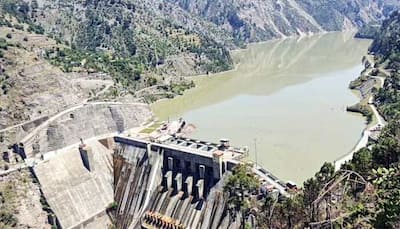New Delhi: In one of the major responses from India after flagging ‘Pakistan links’ to Wednesday’s Pahalgam attack on innocent Indian citizens in Jammu and Kashmir, India has decided to suspend the Indus Waters Treaty, an agreement that has governed water-sharing arrangements with Pakistan for decades.
India has responded harshly after at least 26 people were killed by a group of terrorists in Baisaran meadows in the upper reaches of Pahalgam on Tuesday afternoon.
A day after the horrific incident in Pahalgam, Foreign Secretary Vikram Misri made the announcement on Wednesday. The government said the move will stay in place until Pakistan stops sponsoring cross-border terrorism.
In an official letter to her Pakistani counterpart, India’s Water Resources Secretary Debashree Mukherjee declared, “The Government of India has hereby decided that the Indus Waters Treaty 1960 will be held in abeyance with immediate effect.”
This is the first time that India has officially placed the Indus Waters Treaty on hold, despite years of political tensions and conflict between the two countries.
The Indus Waters Treaty was signed in 1960 with the World Bank as a mediator. The treaty divides the six rivers of the Indus Basin between India and Pakistan. According to the Treaty, the eastern rivers of Ravi, Beas, and Sutlej were given to India while the western rivers of Indus, Jhelum, and Chenab were given to Pakistan.
India is allowed to use the western rivers for non-consumptive purposes like irrigation and hydropower. However, India is not allowed to store or divert large amounts of water from them.
Pakistan is already being plagued by a water catastrophe. The country has relatively little water storage capacity, with the two main dams Mangla and Tarbela, able to store only about 14.4 MAF.
These western rivers are vital to Pakistan. In fact, nearly 80% of the country’s irrigated agriculture depends on them. It contributes nearly 25% to Pakistan’s GDP, primarily through agriculture.
The Indus Waters Treaty is a lifeline for Pakistan. It plays a key role in Pakistan’s economy. The latest developments could have a far-reaching impact on Pakistan’s agriculture, energy, and economy.
Experts warn that the ban might have severe consequences. It may impede the flow of water used for most of Pakistan’s crop irrigation and human consumption.
Food production may decline significantly. Crop yields such as wheat, rice, and cotton can be lower.
Agricultural exports like Basmati rice and textiles may decline.
Hydropower plants like Tarbela and Mangla depend on uninterrupted flows. Power outages could become more frequent.
Cities and towns may face drinking water shortages.
Stay informed on all the , real-time updates, and follow all the important headlines in and on Zee News.











